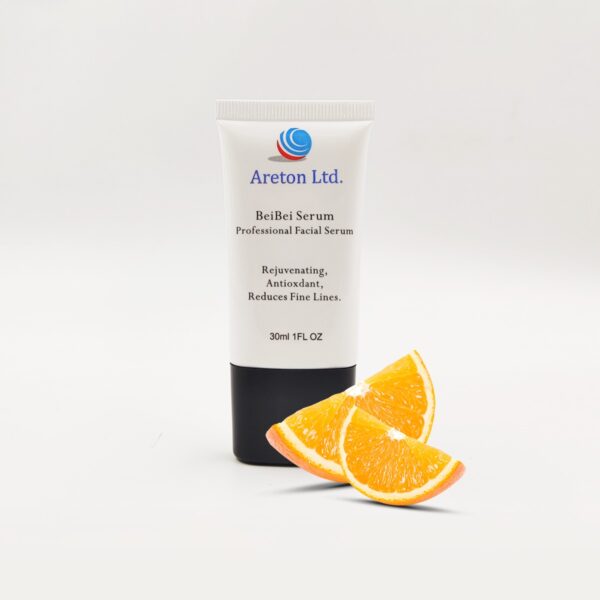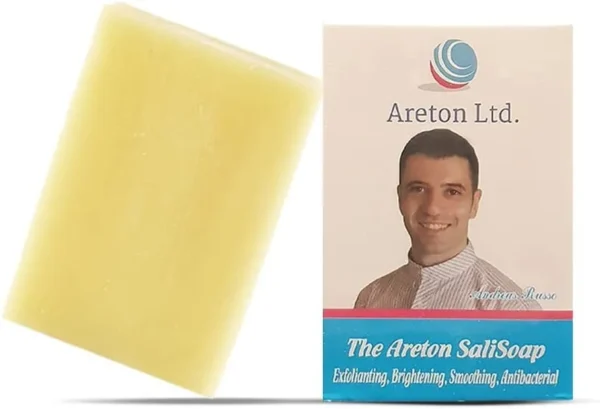[vc_row][vc_column][vc_column_text][/vc_column_text][vc_empty_space][vc_column_text]
Overview
Kojic acid is made from several different types of fungi. Moreover, it results from the fermentation of many foods, such as Japanese sake, soy sauce, and rice wine.
Tyrosine, an amino acid required for the production of melanin, is inhibited and prevented by kojic acid. The pigment melanin determines the colour of the skin, eyes, and hair. Kojic acid has the potential to lighten skin because it prevents melanin from being produced.[/vc_column_text][vc_empty_space][/vc_column][/vc_row][vc_row][vc_column][vc_column_text]
kojic acid and its uses
[/vc_column_text][vc_row_inner][vc_column_inner width=”1/2″][vc_column_text]Kojic acid is sometimes used in health and beauty products to lighten the skin. It may be used to treat skin conditions, such as sun damage, scars, and age spots.
The science behind how kojic acid works as a lightening agent involves its effect on melanin production.
Melanin is a naturally occurring pigment in the body that gives the eyes, hair, and skin their color. An amino acid called tyrosine is needed to support the production of melanin.
Kojic acid works by blocking tyrosine from forming, which then prevents melanin production. Decreased melanin production may have a lightening effect on the skin.
Kojic acid is most commonly used in cosmetic products, such as creams, lotions, and serums. It is also used in some soaps. Many products with kojic acid are intended for use on the hands or face.
Products containing kojic acid can also be used on other parts of the body, such as the legs and arms. The concentration of kojic acid in cosmetics is often between 1 and 4 percentTrusted Source.
Certain products containing kojic acid, such as serums, are meant to be applied to the skin and left on and absorbed. Some products, such as soaps, are applied and washed off.[/vc_column_text][/vc_column_inner][vc_column_inner width=”1/2″][vc_column_text][/vc_column_text][/vc_column_inner][/vc_row_inner][/vc_column][/vc_row][vc_row][vc_column][vc_column_text]
Kojic Acid Sources And Forms
[/vc_column_text][vc_row_inner][vc_column_inner][vc_column_text]One of the fungus from which kojic acid is formed is Aspergillus oryzae. It also develops during the fermentation process of Japanese culinary items like rice wine and soy sauce.
It is particularly utilised in serums and lotions for skin lightening. Kojic acid is also available in powders, cleansers, and soap bars, among other forms. The Areton Ltd. offers you the best products with kojic acid.
[/vc_column_text][vc_single_image image=”8940″ img_size=”600*350″ alignment=”center”][vc_column_text]
The Ultimate Treatment For Skin Pigmentation Is Kojic Acid
Have you tried to eliminate your hyperpigmentation? If so, you need to be aware of kojic acid, which is a skin-lightening ingredient found in most cosmetics.
Are you curious about what makes this substance so unique? Kojic acid can heal a wide range of skin problems, including melasma, UV damage, and acne scars.
Let’s talk in-depth about the uses and Benefits of kojic acid in skincare in this blog. To read more, scroll down.
[/vc_column_text][vc_empty_space][/vc_column_inner][/vc_row_inner][vc_column_text]
How to Use Kojic Acid for Skin Care
Since kojic acid is available in a variety of forms, including powder, lotions, serum, etc., you should keep the following in mind:
1. For instance, always combine Kojic acid with water or lotion when using powders, and follow the product’s recommendations.
2. Usually, kojic acid begins to provide results after two weeks. You might intensify the procedure using glycolic acid if you want to see results more quickly.
3. Allow your skin some time to fully absorb kojic acid lotions or serums be-fore using them.
4. We suggest rinsing off goods like kojic acid soap and cleansers as soon as you use them.
5. Employ goods as directed. Face masks, for instance, should only be used rarely. While kojic acid lotions can be applied daily.
6. You can use kojic acid products nearly anywhere on your body except for the eyes, nose, inside of your mouth, and intimate areas, despite the fact that they are most commonly used on the hands and face.
Can kojic acid be left out overnight ?
Kojic acid serum, cream, or lotion can be left on overnight for improved absorption, however soaps and cleansers must be removed right away after use.
You can wash The Areton BeiBei serum after using it for 10 to 15 minutes and still see effects, albeit you don’t have to leave it on overnight.
Benefits
[/vc_column_text][vc_row_inner][vc_column_inner width=”1/2″][vc_column_text]The benefits of using products containing kojic acid may include the following:
- Anti-aging effect: Products containing kojic acid may lighten the skin, which can improve the appearance of age spots and sun damage. The reduction of dark spots can have an anti-aging effect.
- Treat melasma: Kojic acid may also be helpful in decreasing melasma, which is darkening of the skin due to pregnancy.
- Decrease the appearance of scars: Kojic acid may also reduce the discoloration of scars. Although the acid does not improve the thickness of scar tissue, it may reduce dark pigmentation associated with certain types of scars. Lightening the scar may make it less noticeable.
- Antifungal benefits: Kojic acid is also thought to have some antifungal benefits. It may be helpful in preventing and treating certain fungal infections, such as athlete’s foot and yeast infections.
- Antibacterial effects: Kojic acid may also provide antibacterial benefits. It may help decrease the chances of developing common types of bacterial skin infections.
[/vc_column_text][/vc_column_inner][vc_column_inner width=”1/2″][vc_single_image image=”8504″ img_size=”full”][/vc_column_inner][/vc_row_inner][/vc_column][/vc_row][vc_row][vc_column][vc_column_text]Kojic acid may be helpful for people who have dark spots on their skin due to sun damage, aging, or scars. Some people with certain skin conditions or allergies may be advised not to use kojic acid, however.[/vc_column_text][/vc_column][/vc_row][vc_row][vc_column][vc_column_text]Kojic acid is often used topically to treat a number of different cosmetic conditions. It’s been approved for use in cosmetic products in concentrations of 1 percent or less. It’s most often used as a skin-lightening agent.
Powders, serums, creams, cleansers, and soaps, among other cosmetic product categories, all contain kojic acid. Depending on the product directions, powders should be combined with either water or lotion. Some goods, such as soaps and cleansers, are designed to be removed right away with water. Some, like creams and serums, are meant to be applied and then left on the skin for absorption. (However, total absorption rates of kojic acid below the skin’s surface are quite poor.)
Face masks are one example of a product that should only be used occasionally. You can use creams,serum,soap and cleansers every day.
Products containing kojic acid are most commonly used on the face and hands, but can be used on all non-sensitive areas of the body.[/vc_column_text][/vc_column][/vc_row][vc_row][vc_column][vc_column_text]
Is kojic acid safe to use?
Kojic acid, although being called “acid,” is safe to use, however we wouldn’t advise using any treatments that aim to fully lighten your complexion because your general skin tone shouldn’t be altered. When utilising excessive amounts of a substance, you risk seriously irritating your skin because your skin will eventually return to its normal state once you stop using it. To remove discoloration that did not originate on your skin, such as age spots, sun spots, or post-breakout marks, you should use products containing kojic acid.
The mild antioxidant, antibacterial, and exfoliating effects of kojic acid. If you don’t want to use (or can’t take) substances like hydroquinone or retinoids, this is an excellent alternative because it is safe and well-tolerated on the face and body even by the most sensitive skin types. Depending on the concentration of kojic acid and the other ingredients in the product, she continues, a serum or pad infused with the substance can be used once to twice daily.
[/vc_column_text][/vc_column][/vc_row][vc_row][vc_column][vc_column_text]
Summary
People with dark areas on their skin brought on by scars, ageing, or sun exposure may benefit from kojic acid. Kojic acid should be avoided, though, by those who have specific skin disorders or allergies.
The best way to ensure that utilising products containing kojic acid is safe is to consult a dermatologist.
Additionally, a dermatologist could advise on the frequency of application and product concentration.
People must to always read the instructions before utilising a product. A dermatologist’s suggested dosage of kojic acid should be present in the product, so be sure it does.
Kojic acid is a specialist in the treatment of scars and hyperpigmentation. However, you must not use it solely to lessen your skin pigmentation. The best and safest approach to utilise kojic acid depends on what skin issue you are using it for. Consult a dermatologist for advice.
Areton Ltd. has the best solution if you’re seeking for a way to get rid of your black spots. Kojic acid, which is present in the Areton SailSoap and BeiBei Serum, lightens dark spots while giving you a smooth, radiant glow.[/vc_column_text][/vc_column][/vc_row][vc_row][vc_column]



